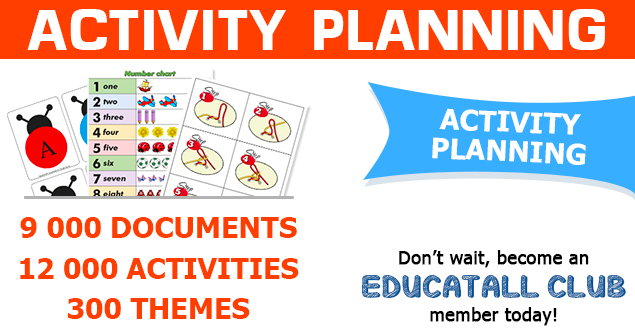
How child development influences discipline
As they grow, children go through different developmental stages that directly impact discipline. At times, they will test and challenge limits whereas, during other periods, it will be easier for them to collaborate. Throughout all these stages, you will be forced to adapt your approach repeatedly.
Believe me, this is all part of developmental normality. Have you ever met a child who did not go through the "terrible twos" stage? I haven't. Have you ever met an early childhood educator who didn't survive this difficult stage? Never. However, these stages do require certain adjustments. Below, I have summarized the major developmental stages that have a direct impact on discipline.
The "baby" stage
The "baby" stage is most likely the only stage during which the word "discipline" has a different connotation. Fulfilling children's basic needs represents an important part of your role during this period. Slowly, children will begin exploring as they become more and more curious and active. They will need to be protected, since they are unable to understand the concept of "danger". Of course, very little discipline is required during this stage, but progressively establishing a clear code of conduct and limits while learning to say "no" is important at this age. The number of rules must be limited and these rules must be simple and tangible.
The "terrible twos"
The "terrible twos" period is most likely the period we are most familiar with since it is without a doubt the most highly documented childhood developmental stage. "Babies" become little naysayers who can be assertive and explosive at times. Although it may be hard to believe in the heat of the moment, this period leads to positive results. Children develop their own interests, needs, and desires. They also begin to "detach" themselves from the adults who care for them as they become their own separate entity. This explains why they are so reactive during this period.
Throughout this stage, here is what is important: establishing clear guidelines, determining your limits, and aiming for consistency. At all times, your rules should respect the five C's and be clear, constant, coherent, consequent, and concrete. Also, provide children with the opportunity to make choices whenever possible. These tactics can help children be more cooperative. Their desire for autonomy is huge during this period, but their capacities are limited and this can cause frustration and anger. Aggressive gestures will also be part of the picture. Children want to express themselves, but their language skills are limited. This explains why they often act out. These actions must be supervised. You must be firm and establish clear limits while demonstrating a certain level of flexibility to give children a sense of power.
Three-year-olds
This period has not been given a specific name. Many enjoy a certain lull between the "terrible twos" and the "ferocious fours". Although children continue to be self-centered at this age, a certain openness towards others can be observed at times. Children learn how to share and can establish contact with others more harmoniously. They want to play with their peers and approach others. The limits that you set forth will be less frustrating for children. Of course, limits continue to be very important. Try to be as consistent as possible in regards to the guidelines established during the "terrible twos" and continue to enforce your rules. Encouraging children to be autonomous can contribute to the development of their individual personalities. I suggest taking advantage of this period to breathe deeply, especially since a few headaches await during the next period.
The "ferocious fours"
Although fewer authors have written about this period, trust me, the "ferocious fours" exist. Often, this period resembles preadolescence. Arguing, verbal confrontations, and assertiveness are common during this period. Children will continuously test your requests. During the "ferocious fours" here is what you must keep in mind: avoid escalating conflicts and endless arguments at all costs. Your words must clearly express self-confidence. Try to let children make certain choices and be consistent. Four-year-olds are great at detecting even the slightest loophole. If they find one, they will use it to try to make you change your mind.
Although all these periods come with their share of worries and adjustments, they are also packed with wonderful moments that can be shared and enjoyed.
Maude Dubé,
Specialized educator

 Home
Home Theme activities
Theme activities
 Babies and toddlers
Babies and toddlers
 Arts and crafts
Arts and crafts
 Science
Science
 Creative recipes
Creative recipes
 Tips and tricks
Tips and tricks
 Special needs
Special needs
 Extra activities
Extra activities
 Educ-TV
Educ-TV
 Newsletter
Newsletter  Online store
Online store Educatall club
Educatall club

